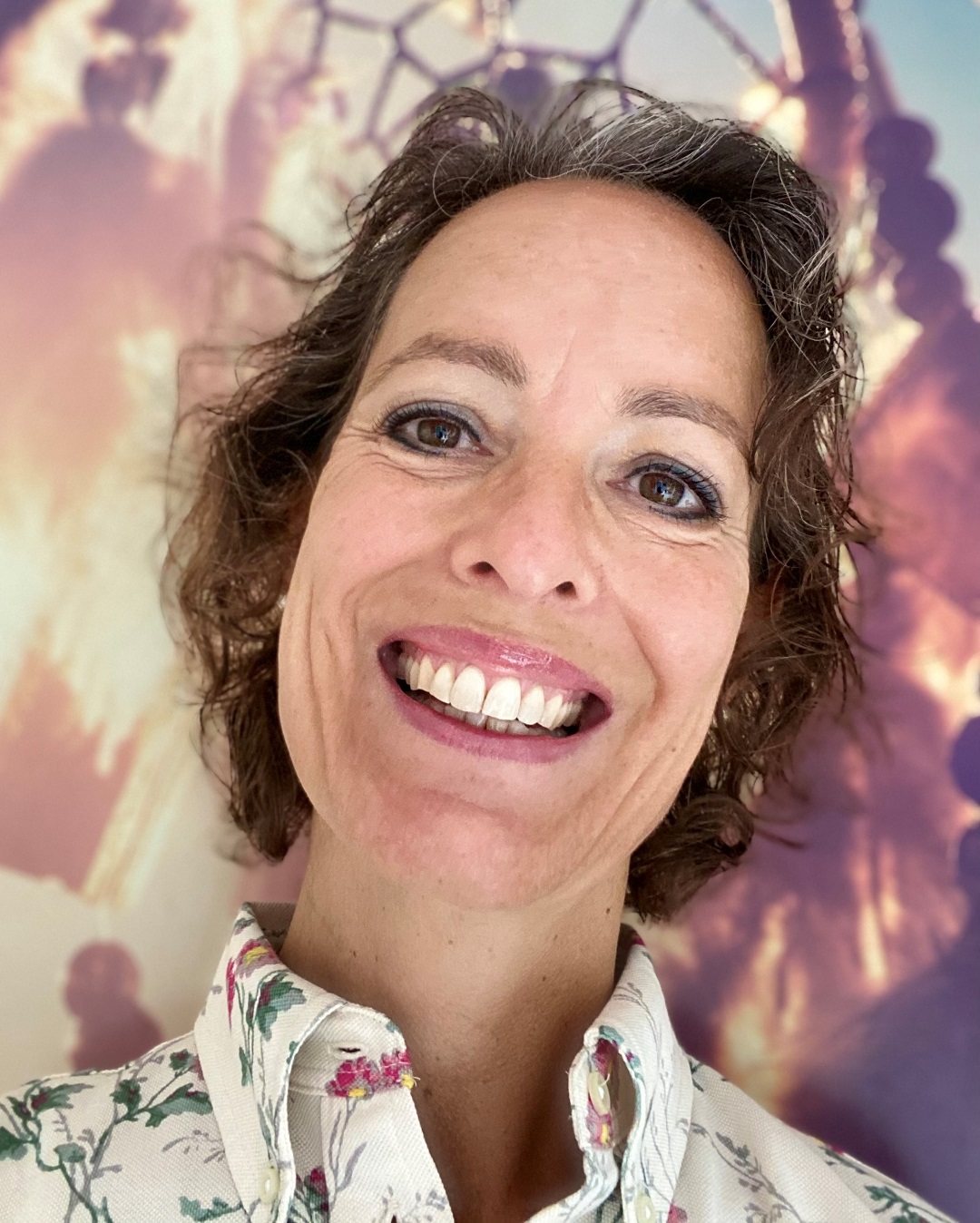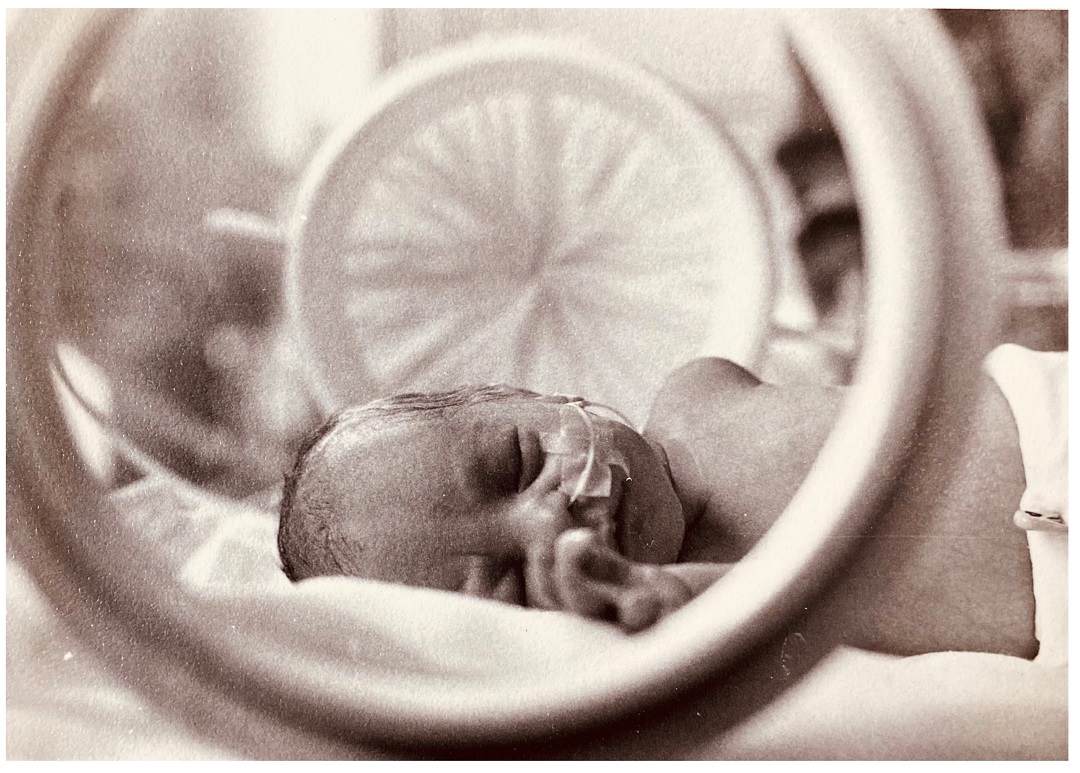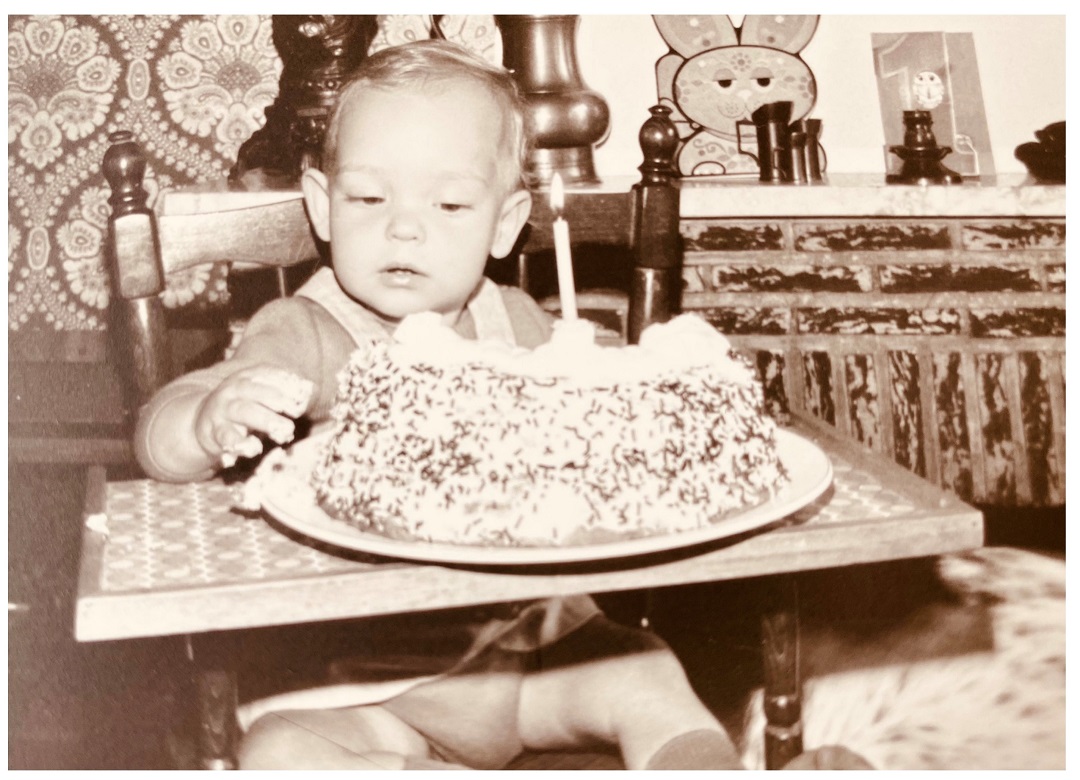

“From fear and freezing to trust and letting go”– an interview with Ingeborg Anna Martens on preterm birth and the consequences of separation policies
Ingeborg Anna Martens was born in gestational week 30/31 in the 1970s. As was the common practice back then, she was separated from her parents who could only “visit” their daughter at the ward and look at her from a distance, for about two months. Over the years, Ingeborg has reflected a lot on the long-term influence her preterm birth had had on herself and on her relationship with herself and to those close to her. With GLANCE, she shared how she emerged stronger from the past and looks into the future with courage and self-acceptance.
Ingeborg Anna Martens is a blogger, mentoring and experience coach for preterm birth, you find her contacts below © Ingeborg Anna Martens
GLANCE:
Since the outbreak of the pandemic, many hospitals and neonatal intensive care units
(NICUs) have introduced the practice of separating preterm babies and otherwise sick
newborns from their parents, allowing only very limited contact or none at all.
When you as an adult who was born preterm and separated from your parents, hear or read about this practice, does it trigger anything in you?
Ingeborg:
Absolutely this triggers something in me. I understand that in a pandemic choices have to be made and safety comes before anything else. But separating parents from their child also results in insecurity, in the sense of feeling unsafe. In a child, this can leave lifelong marks.
Knowing this fills me with sadness, heartache.
G: You were separated from your parents for 2 months after your birth. Looking back, do you have the impression that this had lasting consequences? For example, on your (emotional) development or on interpersonal relationships like the one you had with your parents?
In life, we all take our own journey, with our own desires, needs and ideals.
A common thread in my life is my health. As young as I was, I often expressed ‘ how wonderful it would be if my body could be baked over again’. From an early age on, I have had a strong drive to get things done, a hard worker, wanting to do well, to prove to myself that I can do it. The urge to prove? I think so. But also the need to feel to be seen heard and understood. To know that I am loved, although I do not always believe it myself deep inside.
I found out pretty quickly that body and mind are connected. My willpower is enormous I am blessed with a strong positive mindset. And yet? Why has my body overpowered my mind several times in the past? After all these years I realise that my premature birth and my time in the incubator had a lot of impact on my life. For a long time, I didn’t want to face that.
Emotional connection and unconditional love are at the core of our basic trust and right to exist.

During the incubator period, my parents were allowed to admire me only from a distance and so they did. There was no touch, let alone skin-to-skin contact. (Except the physical contact during medical procedures, of course). So emotional nourishment was out of the question basically. Fortunately, this was later rectified and some holes in my (attachment) web were repaired.
Despite a safe home, I think that, in retrospect, I have ‘survived’ most of my life; full in my survival mode.
In the meantime, I have taken a lot of steps in this and gathered knowledge to get out of this survival mode. By immersing myself in the workings of our stress system, I have become aware of several things and have set to work. Mostly by myself, but I also called for help. After all, we don’t have to do everything on our own. I have mapped out my birth and unmet needs, tapped into my body memory, felt things through and had several conversations. Thankfully.
I became aware of various triggers, which still occasionally set my survival mechanism into motion. I then go into a kind of ‘rigidity’, in my head.
With bodywork and meditation, I manage to find the connection with my heart, soul and body again and how to relax. That is very nice.

From fear and freezing to trust and letting go.
Because of this, I am also able to guard my own boundaries better and I don’t let others cross them so quickly anymore. I have learned to take up my own space, without feeling guilty. I do matter as a person and I am safe because, in the end, it is all about feeling safe and comfortable with and within yourself. The result is that I feel the love in myself again, the love of others, and I feel welcome. Sometimes not yet, but every day we learn, by trial and error. For a lifetime.
G: You were born preterm in the 70s when it was very common to restrict the parents’ access to their baby. Now we observe that in many hospitals practices like this are still or again in use as they were 40 years ago. What lessons do you think neonatal units and hospitals should learn from the pandemic?
I think it’s important to think in terms of possibilities and solutions. Even in these times, full of challenges. The first 1000 days of a child’s life are decisive for the rest of their lives.
A good attachment, feeling seen, heard, loved and understood. These are incredibly important building blocks for a strong bond between an infant and parent.
No matter how small you are, all the early experiences and impressions are saved in your brain. You can’t put words to it yet, but the body saves all this information. This creates stress and has an influence on your emotional and physical development.
I always say: ‘You always take yourself with you’. As a child, a parent, but also for example in your role as a professional. Be aware of your own emotions and stress.
Individual developmental care should really be key in the care of the sick and/or premature baby. It takes into account the needs of each individual baby and the relationship with his parents. (So, no separation!)
With an optimal start, you can prevent much suffering later. Not only in the period in the hospital, but also in the period when the baby comes home. Give everyone a ‘soft landing’ in this respect.
Connected, no matter what or how your start has been.
Thank you very much for your time and for sharing this with us!
Find Ingeborg Anna Martens blog here